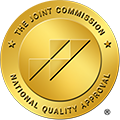Discover the signs and symptoms of drug abuse and explore how cocaine addiction rehab treatment works and the programs Memphis Detox offers to help you recover.
Understanding
Cocaine Addiction Rehab
Cocaine is a commonly abused illicit substance. Due to its highly addictive properties, individuals who use this drug gain dependence on it quickly, which can lead to devastating physical and mental consequences. Rehab treatment helps individuals who are addicted to cocaine detox from the drug and pursue sobriety. To best understand how cocaine rehab works, it’s helpful to learn how cocaine affects the body, as treatment addresses these effects directly.
Cocaine is a highly addictive stimulant derived from the coca plant. It is most commonly used as a white powder that is snorted, smoked, or injected. Once in the body, cocaine rapidly increases the brain’s levels of dopamine, which is a neurotransmitter associated with pleasure and reward. This flood of dopamine causes the intense “high” users experience, but it also disrupts the brain’s natural reward system, making it difficult to feel pleasure without the drug. Over time, repeated cocaine use changes the brain’s structure and function, leading to compulsive drug-seeking behavior and addiction.
Recognizing the signs of cocaine addiction is key to getting help early. Common symptoms include:
- Frequent nosebleeds or a runny nose (from snorting)
- Dilated pupils and increased energy
- Rapid speech and restlessness
- Mood swings, irritability, or paranoia
- Neglecting responsibilities at work, school, or home
- Financial or legal problems related to drug use
- Strong cravings and inability to stop using despite negative consequences
Cocaine use poses serious health risks, both in the short and long term. Short-term effects include increased heart rate, high blood pressure, elevated body temperature, and risk of heart attack or stroke. Long-term use can lead to:
- Heart disease and arrhythmias
- Respiratory issues and lung damage (especially from smoking crack cocaine)
- Neurological problems, including seizures and memory loss
- Mental health disorders such as anxiety, depression, and psychosis
- Increased risk of infectious diseases (HIV, hepatitis) from injection use

Cocaine Addiction Treatment Options
The first step in overcoming cocaine addiction is detoxification, or “detox.” This process involves clearing cocaine from the body and managing withdrawal symptoms, which can include fatigue, depression, anxiety, and intense cravings. Medical supervision during detox is recommended, as withdrawal can be challenging and sometimes dangerous. Cocaine detox programs provide a safe, supportive environment and may use medications to ease symptoms and prevent complications.
After detox, individuals can choose between inpatient (residential) and outpatient rehab programs. Inpatient rehab involves living at a treatment facility for a set period, typically 30–90 days, and offers intensive therapy, medical care, and support. Outpatient programs allow individuals to live at home while attending scheduled treatment sessions. The choice depends on the severity of addiction, personal circumstances, and support systems. Both options can be effective, especially when tailored to the individual’s needs.
Behavioral therapies are the cornerstone of cocaine addiction treatment. Cognitive-behavioral therapy (CBT) helps individuals identify and change patterns of thinking and behavior that contribute to drug use. Contingency management uses rewards and incentives to encourage sobriety. Other approaches, such as motivational interviewing and group therapy, can also be beneficial. These therapies teach coping skills, relapse prevention strategies, and ways to manage triggers and cravings.
Currently, there are no FDA-approved medications specifically for cocaine addiction, but research is ongoing. Some medications, such as disulfiram, modafinil, and topiramate, have shown promise in reducing cocaine use and cravings in clinical trials. Treatment providers may also prescribe medications to address co-occurring mental health conditions, such as depression or anxiety, which can support recovery.
Long-term recovery from cocaine addiction requires ongoing support. Support groups like Narcotics Anonymous (NA) and Cocaine Anonymous (CA) provide a sense of community and accountability. Aftercare planning is essential and may include continued therapy, sober living arrangements, and regular check-ins with a counselor or sponsor. These resources help individuals maintain sobriety and navigate the challenges of life after treatment.
Choosing the Right
Cocaine Addiction Treatment Center
Not all cocaine rehab programs are equal. Often, the effectiveness of a program can depend on how well it meets the unique needs of an individual. When choosing a program, it’s important to consider the following tips.
When searching for a cocaine rehab or treatment center, consider the following:
- Accreditation and licensing
- Qualified medical and clinical staff
- Evidence-based treatment approaches
- Personalized treatment plans
- Availability of detox and mental health services
- Support for family involvement
Ask as many questions as you can during your research and admission process. This can help you understand how a facility operates and what benefits you can expect from it. Here are some examples of questions you might ask:
- What types of therapies and programs are offered?
- Is medical detox available on-site?
- What is the staff-to-patient ratio?
- How is aftercare and relapse prevention handled?
- Are family members involved in the treatment process?
At Memphis Detox, our admissions team is available to answer all of your questions.
Many treatment centers accept private insurance, Medicaid, or Medicare. It’s important to verify coverage and understand any out-of-pocket costs before enrolling. Some facilities offer sliding scale fees or payment plans to make treatment more accessible.

Recovery and Relapse Prevention
A strong support network is vital for a lasting recovery. This can include family, friends, support groups, sponsors, and mental health professionals. Open communication and encouragement from loved ones can make a significant difference in the recovery process.
Learning to manage triggers and cravings is a key part of recovery. Strategies include:
- Avoiding people, places, or situations associated with drug use
- Practicing stress-reduction techniques (meditation, exercise, hobbies)
- Attending regular therapy or support group meetings
- Developing healthy routines and goals
Recovery is a lifelong journey. Long-term resources include ongoing counseling, alumni programs, sober living homes, and online support communities. Staying connected to these resources can help prevent relapse and promote a fulfilling, drug-free life.
Frequently Asked Questions (FAQs)
Reach out to a healthcare provider, addiction specialist, or helpline for guidance. Early intervention increases the chances of successful recovery.
Withdrawal symptoms typically begin within hours of the last use and can last from several days to a few weeks, depending on the individual and severity of use.
While some people attempt to quit on their own, professional treatment is strongly recommended due to the risk of severe withdrawal symptoms and relapse.
Success rates vary, but evidence-based treatments like behavioral therapy significantly improve outcomes. Ongoing support and aftercare are crucial for long-term recovery.
No medications are currently approved specifically for cocaine addiction, but research is ongoing, and some medications may help reduce cravings.
Offer encouragement, avoid enabling behaviors, participate in family therapy, and educate yourself about addiction and recovery.
Warning signs include increased stress, withdrawal from support networks, returning to old habits, and renewed cravings or drug-seeking behavior.




